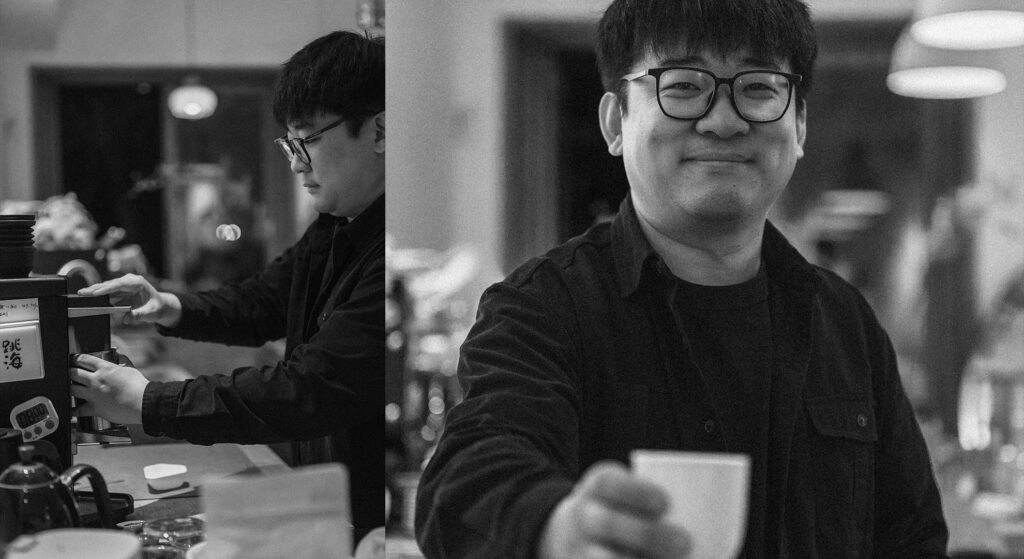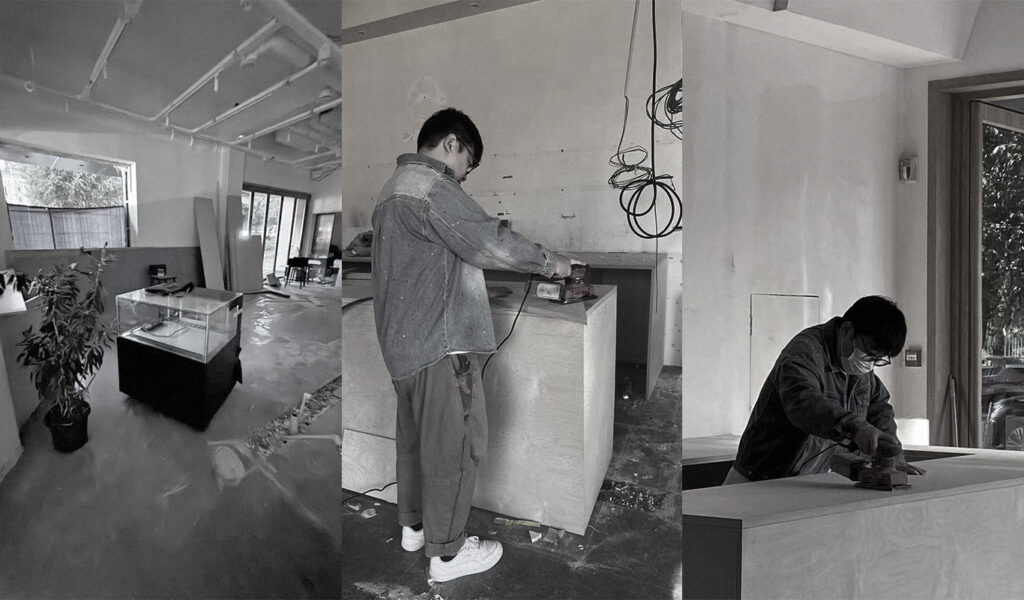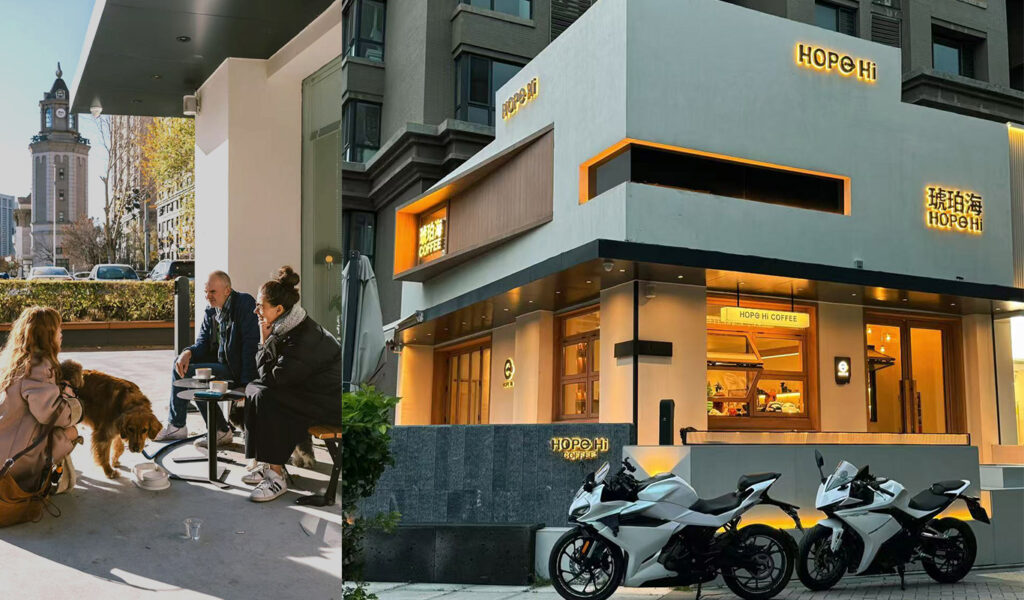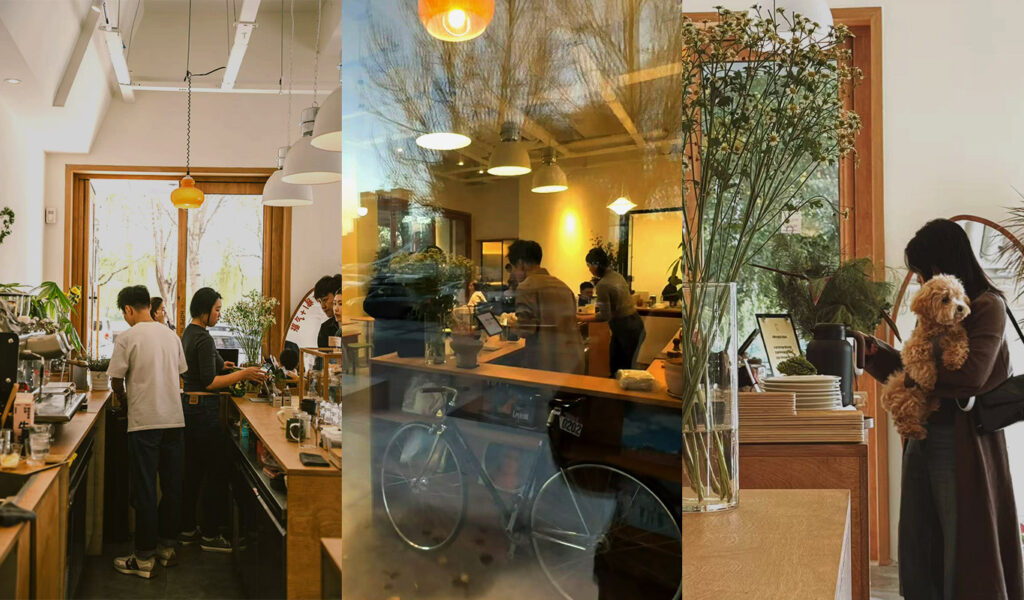Snow falls softly on Shenyang’s quiet streets, blanketing the northern Chinese city in a hush that feels eternal. Inside a small apartment, Wang Chuan, a photographer with a restless heart, flips through snapshots of a Taipei café, its warm lights cutting through the evening chill. It’s 2016, and he’s just stepped out of Stay Real, a coffee shop owned by Mayday’s lead singer, Ashin. The band’s bassist, Masa, has one too. To Wang Chuan, their music pulsing through his headphones since youth, these aren’t just cafés—they’re proof that dreams can take root.
“I was just a guy with a camera, but when I saw those places, I thought, ‘This is cool. I want to create a space like that, where people feel something,’
he recalls, his voice soft but sure. His lens catches the glint of snow outside, and a spark takes hold.
By 2019, Wang Chuan’s life has been a whirlwind of Beijing photo shoots and travel gigs, but Shenyang calls him home. He’s ready for a new path, though the details are hazy. Plans for a travel business falter as the pandemic looms. Then, a visit to a friend’s café changes everything. Over a pour-over, the friend traces coffee’s journey—Ethiopian slopes, berry-like notes, meticulous roasts. Wang Chuan leans in, hooked.
“It hit me that coffee isn’t just a drink. It’s a craft, a story from seed to cup. I wanted to be part of that,”
he says. With no barista experience, he enrolls at coffee course, studying beans and brews while hunting for a shop. He finds a corner spot, its tall windows flooding with sunlight. In 2022, HopeHi opens, a defiant leap as the world shuts down. “I kept asking myself, ‘Am I crazy to do this?’ But the idea of sharing coffee—it kept me going,” he admits, a wry smile in his voice.
The pandemic sweeps through Shenyang like a blizzard, leaving streets empty and shops dark. HopeHi feels like a lone candle in the storm. Wang Chuan brews for a few locals, his savings shrinking. “That winter of 2022 was brutal. No cars, no crowds, just silence. We didn’t rest, though. We kept the shop open, even when it was just me and the espresso machine,” he recalls. One morning, a neighbor shuffles in, pajamas under a coat.
“He said, ‘I can’t taste a thing, but I need this latte to feel normal.’ I laughed—it was absurd, but it meant something.”
That moment, a small shared warmth, keeps him grounded. “Those little connections, a nod over a cup, they reminded me why I started,” he adds.
Another struggle brews inside HopeHi’s sunlit walls. Crowds flock for the shop’s charm—clean wood, soft mugs, light dancing across tables—but they order fruit teas, sugary slushes, anything but coffee. Wang Chuan, who’s stayed up late perfecting pour-overs, feels deflated. “I’d spent months learning coffee, tasting every note, and people just wanted kiwi smoothies. It hurt, like they didn’t see what I was trying to do,” he says. Doubt gnaws at him. Is HopeHi just a pretty photo op? He turns to roasting, but it’s unforgiving. Cheap beans taste flat; good ones burn.
“Early on, I ruined so many batches. The smell of scorched coffee—it’s like failure in your nose. I thought, ‘I’m wasting everything,’”
he admits. Bills pile up, and closure looms. But the neighbor’s visit, the dream from Taipei, pull him back.
“I couldn’t quit. Coffee was teaching me, even when it was hard,”
Hope Hi Cafe
Later he finds a roasting mentor, tweaking heat and timing through endless trials. At HopeHi, he starts small, sharing coffee’s story with curious patrons. A regular asks about Colombian beans; another savors a hand-pour’s floral brightness.
“Slowly, the selfie crowd faded, and people who loved coffee stayed. That’s when I knew we were building something real,”
he says. Meiya, the barista with a sunny laugh, greets morning commuters. Hao, warm and meticulous, crafts specials like a citrus-infused cold brew that sparks chatter. A regular, once just a customer, becomes a part-time barista. “He kept asking to learn. I told him, ‘It’s mostly cleaning, you know.’ He didn’t care. Now he’s family,” Wang Chuan chuckles.
Roasting becomes his passion, a blend of science and art. His photographer’s eye tracks the beans’ shift—green to gold, gold to chestnut—each hue a step closer to perfection. One evening, he nails a batch: bright, berry-like, alive.
“When I tasted that roast, I thought, ‘This is why I’m here.’ It was like capturing the perfect shot,”
he says, the memory lighting his face. Competitions sharpen his edge. At the Aeropress nationals in Hangzhou, lights pulse, baristas swap stories, and coffee flows like music. “It’s a big party—everyone’s sharing, learning. I bring that energy back to the shop,” he says. But he’s not done growing. As a shop owner, he’s a student first, always chasing better coffee. In May 2025, he’ll compete in the Chinese Roasting Competition, a chance to test his craft on a national stage. “It’s not just about a trophy. It’s about pushing myself, serving coffee that’s truer, reaching what I’m capable of,” he says, his voice steady with purpose.
HopeHi resists labels—Nordic, Korean, whatever. “People call it what they want. I just want it to feel warm, like a hug against Shenyang’s winters,” Wang Chuan says. His lens captures the magic: steam curling from mugs, Meiya’s grin, sunlight pooling on the counter. The scent of fresh grounds mingles with soft music, a balm for the soul. He dreams of a second shop, hand-pour only, where coffee’s story takes center stage.
“I see a place where enthusiasts come, where a great brew doesn’t break the bank. It’s about sharing, not showing off,”
he says. A free cup for a podcast listener, a cupping session with locals—it’s all part of the vision. “Coffee’s a conversation. You share it, and it grows. That’s what keeps me going,” he adds, watching a customer savor a pour-over, eyes closed in quiet joy.
Wang Chuan thinks of the silent streets, the burnt beans, the neighbor’s latte. He thinks of the roaster’s hum, the competition ahead, the spark from Taipei. In Shenyang’s chill, HopeHi glows—a haven built on grit, heart, and a dream that refuses to fade.




